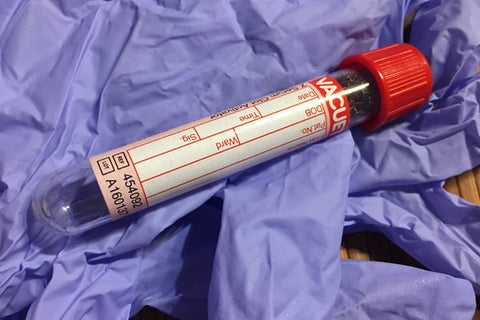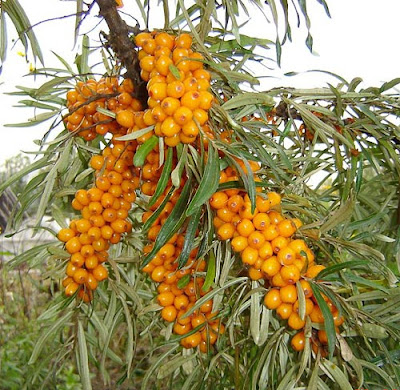Sea Buckthorn & Cholesterol
A meta-analysis published in Trends in Food Science & Technology determined a possible link between sea buckthorn and your cholesterol. Meta-analysis results are far more extensive than any one study. It examines data from numerous independent studies regarding the same subject to determine total results and trends. This meta-analysis regarding sea buckthorn and cholesterol pooled data from 900 people. These 900 people took part in 11 random but controlled trials.

Xiao-Fei Guo from Zhejiang University in China led the meta-analysis. The results showed him that sea buckthorn supplements significantly improved blood lipid profiles in people with hyperlipidemia.
Understanding Hyperlipidaemia
Hyperlipidemia is a term often referred to as high cholesterol but it’s a bit more than that. It’s more of an umbrella term. It refers to several acquired disorders or genetic disorders that result in abnormally high levels of fats, cholesterol and triglycerides that circulate in the blood. Cholesterol and Triglycerides are the two major types of lipids found in the blood.

When your body stores extra unneeded calories for energy, triglycerides are produced. Triglycerides come from your diet from foods like red meat and whole-fat dairy. Also, people who eat lots of refined sugar, fructose and drink a lot of alcohol also have high levels of triglycerides.
Cholesterol is similar to triglycerides as it is also found in fatty foods you eat. Eggs, red meat, and cheese are some of the foods that have high levels of cholesterol. But cholesterol is also produced naturally inside your liver. Every cell in your body requires and uses cholesterol. It’s common for high cholesterol to be inherited but it’s almost always a direct result of diet alongside an unhealthy lifestyle.
Do you Have Hyperlipidemia
People who have Hyperlipidemia almost always do not experience any symptoms. It’s detected when your doctor performs a lipid panel blood test and sends it out to the lab for testing. The lipid panel blood test also called lipid profile will determine the cholesterol levels in your blood. Lipid panel reports will show triglycerides in your blood. It will also show total cholesterol levels including low-density lipoprotein cholesterol and high-density lipoprotein cholesterol.

Why Sea Buckthorn may be Able to Help
Guo’s team who studied the meta-analysis data made a statement saying that sea buckthorn contains large amounts of nutrients and chemical compounds that could be beneficial for health. A few of these nutrients include:
- Vitamin C
- Vitamin B1
- VitaminB2
- Vitamin B11
- Vitamin K
- Vitamin E
- Carotenoids
- Phenolics
- Organic Acids
His team also claimed that the data from the meta-analysis was proof that ingesting Sea buckthorn berry extracts would improve total cholesterol for unhealthy people.
The total data from all the studies determined that sea buckthorn consumption significantly decreased total cholesterol and triacylglycerol. But it increases good cholesterol otherwise known as HDL cholesterol and it did not increase bad cholesterol known as LDL cholesterol.
The team also believed that the added benefits of sea buckthorn for the heart was due to its content of phytochemicals, flavonoids and Beta-sitosterol.
Sea Buckthorn, Black & Green Tea
This determination comes from green and black tea studies. These studies suggest that polyphenolic compounds may play a role in improving blood lipids due to the polyphenolic compounds. The data suggest that these compounds inhibit cholesterol absorption in the intestines. Due to these findings, the team believes that the flavonoids in sea buckthorn are producing a similar effect.
Total Results
In the studies, the link between sea buckthorn and your cholesterol determined that on average, sea buckthorn reduced total cholesterol by 24.3 mg per deciliter of blood. Triglycerides reduced by 40.7 mg per deciliter of blood. LDL was decreased by 23.9 mg per deciliter of blood. The participants taking sea buckthorn oil who had huge risks of developing heart or circulatory diseases saw their HDL (the good cholesterol) increased by 10.4 mg per deciliter of blood.



This is one lovely read! I appreciate your post. More power to you!
thanks for the round up. It’s great to be informed